Facial enhancement acupuncture
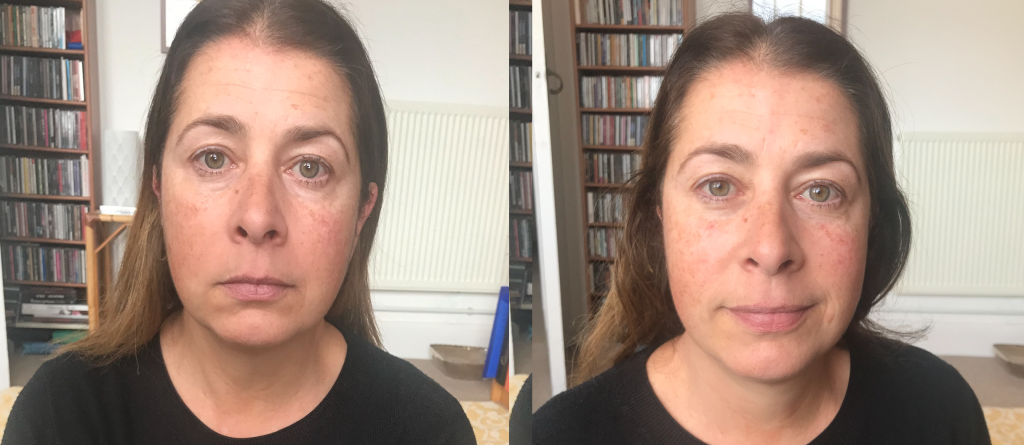
Facial enhancement acupuncture is a non invasive, all natural technique which removes wrinkles and has en overall effect of lifting the epidermis and restoring vitality and health to a persons face.
This has been practiced already for centuries in China but now is having a revival in the West. As one can appreciate in the pictures that show the effects of the first treatment this person has received: the result are immediate. Treatment is done with ultra fine acupuncture needles to lift the face, as one can see the expression has become lively. (the treatment on this person was done in the morning just after waking up). The pictures were taken just before and after the treatment.
Treatment is aimed to direct life energy (Qi in Chinese) to the face. The eyes are shining again, the face has glow , the expression more present.
At closer examination one can see the horizontal line in the forehead has almost disappeared, so has the little bag under her right eye.
Lot’s of people are getting weary of medical interventions to help to keep a healthy, fresh appearance. Botox has become a practice that many people like to avoid these days.
Cosmetic acupuncture does not have the side effects that people fear from botox. Plus it’s combined with classical acupuncture that helps to strengthen the vital energy.
Botox is a neuro paralysing drug while facial acupuncture is a revitalising treatment. In the long run this will be more natural, more personal, more lasting, without changing the essential expression of someone, just stimulating the original energy of the facial expression.
TRYING TO CONCEIVE
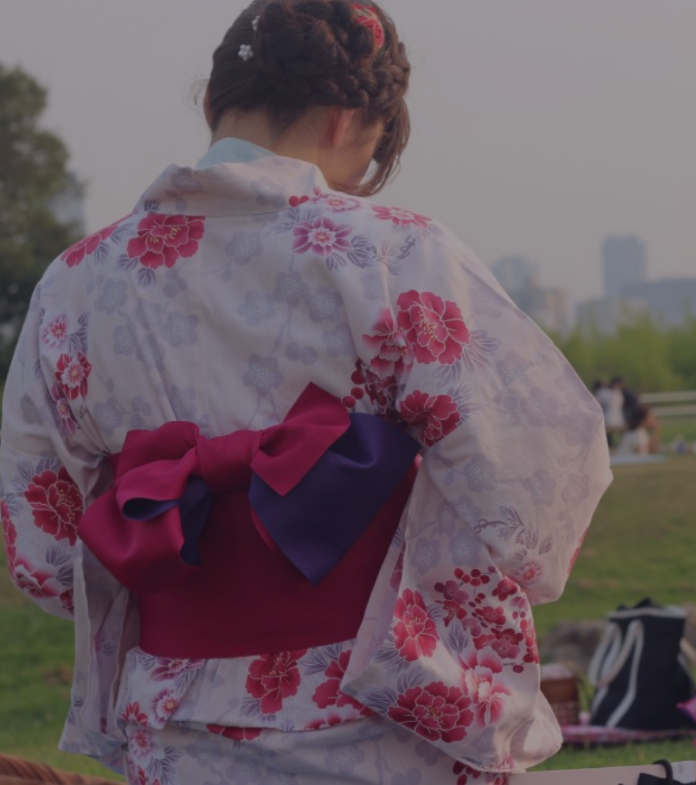
This is the first in a series of posts on female fertility
In this series of blogs I would like to attend one of the most challenging and often heart wrenching problems of modern life: the problems that modern couples face sometimes to conceive.
In the UK 1 in 7 couples face this problem.
I will try to elaborate on the backgrounds of fertility and the approaches to this problem.
I will also try to balance the approach from Western Medicine and ancient Oriental attitude (two thousand years older than ‘Modern Medicine’).
I don’t personally believe in the superiority of either attitude but my argument is that this problem should give us ‘food for thought’ to a much bigger audience than the couples who are struggling with this problem.
Basically it concerns us all. Both attitudes are offering us different understandings.
Obviously this problem has to be attended by both potential parents, but often it is the woman who comes for help first.
The first aspect to attend in clinical practice is the often vaguely defined or understood aspect of anxiety. The couple, or as many times is the case, the hopeful mother comes with a charge of anxiety and other emotional baggage that should be attended in any successful therapy..
As Oriental Attitude teaches: we’re not treating a problem, we’re treating the person.
The first anxiety is the desire to become mother and the second one arrives if that doesn’t happen in the projected time.
Anxiety influences your quality of breath and that influences your levels of energy (Qi in Chinese)
According to ancient understanding the levels of energy in a woman’s body define the quality of her egg cels in her ovaries.
Modern society has produced unprecedented levels of stress that have a massive impact on the wellbeing of women and have affected their ways of looking at becoming a mother.
We will come back on this.
On the other hand secularisation has produced the growth of an attitude that makes us feel in control, first a career, then a house and a husband and then a baby.
This item touches the mystery of existence, it’s difficult on a daily base to imagine that we all were once on cell. Conceiving is talking about miracle, or as more profound understanding teaches us: it’s a gift. Depending on one’s attitude we try to define were it comes from, but certainly from a place beyond our control.
On average a woman is born with one million ovulos. (eggs) When she reaches puberty around 300.000 are left. During her fertile period another 1000 are absorbed every month.
According to ancient understanding it’s of crucial importance to keep her ovaries in the best energetic condition possible.
Energy in our system diminishes during the years. In the last century the age for women having children have been steadily growing and is now even growing much faster.
In 1938 mothers under the age of 30 accounted for 60% of total births, in 2018 this dropped to 40%. Obvious the quality of eggs diminishes over the years.
This is also dependent on our energy economics, maybe we spent more than we receive, maybe we should look deeper into that.
Energy economics depend a lot on body temperature.
In ancient attitude one of the main factors is simply body and especially ‘Hara’ (Japanese for centre, abdomen) temperature.
Normally were not aware of how much energy is needed to keep our temperature at around 37 degrees.
Last week I passed on my bicycle through Brighton and saw two young women eating ice creams dressed in crop tops with their bellies open in the air, me in my double layered North Face dawn jacket, temperature wa 5 degrees.
In my town, Amsterdam in mid winter people order chilled orange juice for breakfast. Citrus fruit already has a cooling quality, chilled even more.
Most of you have seen pictures of traditionally dressed Japanese Geishas in their kimonos wearing their ‘Obi’ (knot) on their lower back.
There is a discussion of where this comes from but truth is, it’s part of their traditional dress. Geishas who were nothing underneath but with their Obi keep their kidneys and therefore their ovaries warm.
In Oriental tradition this is crucial.
Japanese men wrap cloths around their abdomen and back (Hara) because that’s where all essential energy is lodged.
Maybe we can learn from them.
A suivre.
WINTER WIND
After the bountiful and outgoing summer comes autumn with the harvest and the gathering of the result of last year. The outward-directed energy starts to turn and will slowly turn inwards.
In Catalunya where I used to live, there is still the big celebration of the Vendimia, the harvesting of the grapes at the end of summer. In November they still hope for a little uplifting with good weather during some days, ‘El Estiu de San Marti’ when there is a festival to build ‘els castells’ the human castles.
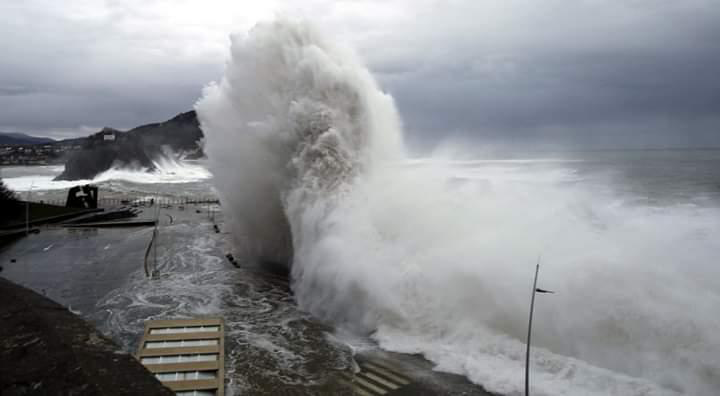
In the USA the prolonged end of Summer is called the Indian Summer, like in China originally a time with warm weather and humidity. It’s like the summer not willing to give up, but eventually the leaves start to colour and to fall, the days are growing shorter and summer will turn into autumn.
But then the energy finally turns totally inward and nature comes to a standstill in Winter, after the gathering of the Autumn comes the closing and storing.
Silence should reign and reflection is appropriate, the winter is the time of the kidneys and related to our ancestry, the past and the vital energy that is stored in the deepest layers of our body, the ones that preserve the essence and hopefully will serve for the future generations.
Kidneys, ovaries, testicles, hormonal system, bone marrow, nervous system, brain but also hearing, all of them belong to Shao Yin, the deepest layer of the interior what we call kidney energy in the west.
In Oriental Medicine we call this, the Heaven Before, the vital energy that enters in our being on the moment of conception.
One of the main locations on the body related to this energy is a point on the Governor meridian (the meridian that controls the spine and head) called Ming Men, The gate of Life, in between the kidneys in the middle of the spine between the second and third lumbar vertebra. In the orient especially in Japan, there is quite a culture about covering the lumbar area and keeping it protected from cold and wind.
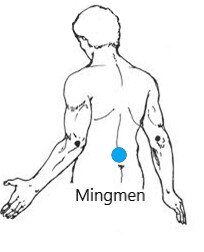
All nice this introspection and winter calm but then, not expected by the many comes the storm as we are living now. Mr Darcy, has been pummelling the east coast of Britain with strong winds and snow up till the streets of Brighton! Today again in Brighton the east wind, 25 miles an hour, straight from the black sea and Ukraine, freezes your bones.
According to ancient understanding the 5 pernicious factors that penetrate the body are wind, cold, heat, humidity and dryness, but wind has an extra dynamic because it is able to carry every one of the others with him.
Meaning, there is wind-heat, wind-cold, wind-dryness etc.
Wind is volatile, changes places, penetrates quickly and produces changing symptoms.
It penetrates first through the skin and then into the lungs (who control the skin) into the body.
The only protection is what is called Wei Qi, defensive energy. We will come back to this.
At this moment the most important thing is protecting the body from infiltration by cold wind.
In the current circumstances with a widespread infection of alien virus the most important thing is to be able to direct all the defensive energy towards that. Therefore protect the body from having to fight other (secondary) fights.
Curiously there are 4 important acupuncture points related to wind (feng) in the neck and the nape of the neck.
We always cover our faces with shawls etc but the enemy comes from behind!
It’s much safer to face the wind than have the wind coming from the back.
The acupuncture points that are located in the back of our neck are the following
Feng Fu 16, governor meridian, The hall of wind, in the nape of the neck, in the middle, just behind the skull.
Feng Que 20 Gallbladder meridian, The pond of wind, on the edge of the side of the occipital bone.
Feng Men, The gate of wind, between the shoulder blades at the height of dorsal 2, one and a half thumb out of the middle line.
All these points, maybe zones are susceptible to be infiltrated by wind, in this case cold wind. As the old texts say, sudden rigidity is due to wind.
Normally wind and especially cold wind, affects the top part of the body, it penetrates between the skin and the muscles leading to an intent of the body to expel it, shivering. Sudden stiffness can occur, but being infiltrated the dispersing and descending function of the lungs is impaired leading to liquids accumulating, runny noses etc.
When we have the beginning of a cold most of the times it starts with a feeling of cold or rigidity in the neck. This can be very subtle but to the sensitive listener, very clear. During the years we have to learn to listen.
Apply warmth, the warm bottle of water that your grandmother used is still one of the best remedies. Warm your neck and the zone between your shoulder blades before sleeping.
Together with Ming Men in the lower back and the areas that are prone to wind invasion it’s time to protect your back and neck from cold wind, meaning shawls round your neck, bodies for the ladies and putting your shirt in your trousers for the men all the time!
These details seem to be superfluous but in our immunity system they are of utter importance.
As Hagakure, the way of the Samurai says, to the big items in life we shouldn’t give too much importance, to the small details in life we should give uttermost importance.
a suivre
Winter is here
Maybe Eddard Stark was right and we soon will see scenes like this one again in Brighton!
Our friends up in the north of the U.K. have had their part of the snow already. But here the days have been crisp and clear, with more sun hours in East Sussex in the month of january than in years.
As the year reaches its darkest period around the solstice of december, the days are getting slowly but steadily longer again. And although there are many signs of the upward movement in nature, it will take still several probably harsh months to get to the start of spring.
One has to maintain patience and remain protected from the cold winds that affect the crucial organs of this period; the kidneys. In oriental culture keeping the centre of the body warm and protected is of crucial importance. All the willpower and forward drive is stored in what in Japanese is called ‘Hara’, the lower abdomen of which the kidneys are the deepest part.
In the language of Oriental knowledge, the kidneys store ‘the heaven before’, the ancestral energy. They control what is called in Chinese: ‘Jing’, which means ‘ Marrow’. The kidneys belong to the ‘Shao Ying’ the smallest Ying, the deepest energetical part of the body. The ‘Marrow and the Deepest Interior’ are an indication of the importance given to the kidney energy.
‘Jing’ is the first part of a human that develops as an embryo; the central nervous system with the brain, the hormonal system, ovaries and testicles and later on the bone marrow, teeth and hearing.
For the survival of the race this aspect of our body should be kept in optimal conditions. In all Oriental practice the preservation of the energy of the ovaries and testicles is the long-term goal. It is maintained at an optimum condition by the ‘Heaven after’ which is based on the quality of our breathing and our diet.
Most people don’t realise how much energy is needed to keep our body temperature around 37 degrees centigrade, therefore the modern western habit of eating cooling foods all year round are causing serious problems. Eating not only salads but drinking fruit juices in combination with sugar and milk products in the winter period causes massive phlegm production, making the body sluggish with its immediate effect on immunity.
Bring out the warming winter stews and soups!
The nostalgic reflections based on the almost standstill in nature invites us to look to the future again, laying the basis of the coming year. And although life can look vulnerable it’s not fragile.
Last week, in my village in Barcelona province, I saw the first almond flowers, covered in frost. A spectacular poetic sight that makes you wonder. A strong little flower almost frozen but it holds on to the branch that holds on to the stem that stands with its roots in the earth, like fragile people, covered in the hardness of circumstances who keep going on.

A beautiful image of the fact that life is not as fragile as we sometimes think. The mother of an old friend, who was born in Indonesia, comparing the life of homeless people in Holland with those in her own country always told us: it’s easier to be poor in a tropical country. Definitely true.
I see the homeless around Hove sleeping in the shop entrances and apart from the loneliness they emanate sleeping on the street, you think about the cold and humidity they have to deal with. I moved from Amsterdam to Spain in 1993 but when I return to Amsterdam, I still meet people who were living on the street when I left and are still doing that now, 22 years later. Although there is a pungent sadness about their lives, it is obvious that their kidneys are strong.
Their life might be mixed up with drugs and alcohol but their ‘Jing’ which is the base of the willpower to survive is extraordinarily powerful.
‘There is much to be learned from strangers’ and sometimes we tend to judge too easily.
I would like to share one of my favourite videos in which Delphine Galou sings an Aria from the Matthäus Passion from Johann Sebastian Bach: Erbarme dich mein Gott. (have mercy my Lord).
Galou is a contra alt and the timbre of her voice enhances the dramatical poetry of the piece. She is accompanied by an outstanding ensemble that makes for an performance that, I believe, wont leave anybody untouched.
My favourite tree
MY FAVOURITE TREE
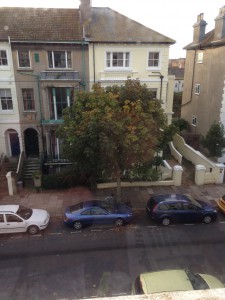 My favourite tree in front of my house in Hove, a still small but sturdy chestnut has lost now but all of its leaves. They already turned golden brown and although the last ones are holding on to the branches with all their might, they also soon will be scattered by the winds that have changed and now blow with a ‘Cutting sound’ as the wind blows in autumn as the Nei Jing (The book of the Yellow Emperor, the classic discourse on Acupuncture) states.
My favourite tree in front of my house in Hove, a still small but sturdy chestnut has lost now but all of its leaves. They already turned golden brown and although the last ones are holding on to the branches with all their might, they also soon will be scattered by the winds that have changed and now blow with a ‘Cutting sound’ as the wind blows in autumn as the Nei Jing (The book of the Yellow Emperor, the classic discourse on Acupuncture) states.
Summer gave way already 6 weeks ago to autumn here in Sussex and one can see it in the changing of the light. Not only that, the seagulls who normally wake us up in the morning at the utter delight of Micaela, are returning to our rooftops, from their passage at the cliffs, hovering over the sea. Although the images of spring impress with their freshness and strength of new life, the colour of autumn trees show the grandeur of the British country side in all it’s elegance.
It’s autumn when all things in nature reach their peak in full maturity, the grains have ripened, the grapes are bursting with their sweet must and the harvest is made. The development of a whole year has reached it’s peak and the expanding energies are making a U-turn, contraction and concentration taking form. ‘Yang has changed into Yin’, the ‘active’ phase has given place to the ‘passive’. The growing has changed to the gathering.
It’s time to leave the lighthearted outgoing life of walks on the beach, sitting at the terraces and night parties to a more weather protected outgoing and indoor life.
Many people find this period of the year one of the emotionally most difficult, the image of the falling leaves is an oh so pungent image of ‘letting go’ and imminent death. The harsh weather induces harsh emotional states. More people slip into depressed moods in autumn than in any other season.
Ancient knowledge states that autumn should be lived with a calm and peaceful state of mind, with restrain from excess sadness, the most common emotion in autumn, to prepare the smooth transition to winter.It’s time to gather one’s spirit and energy, to be more focused (than in the ‘light’ summertime), and be more centred to not let the senses ‘run free’.
The organ that is at the centre of our attention should be the lungs, inducing us to practise breathing exercises more than in any other season. The lungs are at its most vulnerable point in the whole year
.Eddard Stark, the Lord of Winterfell warns us all that; ‘Winter is coming’, probably he realises that after 9 years of summer maybe 9 years of winter might be at our doorsteps. Maybe he knows as Lord of the North what it means, he and his people will be the first to suffer from it. He seems to resemble ancient knowledge, he has lived long winters.
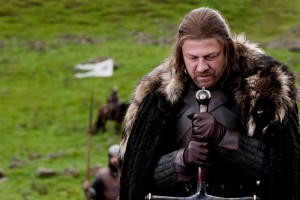 Warning his brother Benjen is hardly necessary, as a renowned raider of the Night Watch he is prepared to protect his people from the white walkers (The uncontrollable power of the north energy), one has to prepare oneself in advance, before the cold strikes.
Warning his brother Benjen is hardly necessary, as a renowned raider of the Night Watch he is prepared to protect his people from the white walkers (The uncontrollable power of the north energy), one has to prepare oneself in advance, before the cold strikes.
Ancient knowledge also tells us that in the season we are in we have to prepare for the illnesses of the next one.
At the same time, executing the ‘deserter’ from the night watch he wants to show his youngest son Bran that one has to take total responsibility for one’s actions and judgements and act according to that. The ‘easy’ times of summer have gone and we’re preparing ourselves for winter. One has to make the passage to growing up.
This is much more than a metaphorical act.
The gathering aspect of autumn should lead to reflection of what we have done the last year, the gathering of our harvest, to reflection of where we want to go, and preparing us to gathering the necessary energy to burst out in the next spring.
Our disconnection from the changing of the seasons is disconnecting us from ‘easy’ power available ‘if we just would listen’……just looking at the first light of the sun, just watching the changing of the tides would help us to connect to the changing powers of nature even in the heart of Manhattan, and help us to adjust to the bigger powers that rule us.
The tendency to give in to melancholia and excessive sadness in autumn has to be controlled, the best way to counteract that is to go out walking, preferably in nature: forest, beach, mountains, but even in the city. Excessive grief will damage the lungs and will harm the kidney (winter) energy, not only can it lead to diarrhoea (the large intestine is the ‘active’, yang, part of the lungs) but it can also inhibit the kidneys (winter organ) to help digest properly and damage their ‘storing’ qualities. It’s in winter when all things in nature wither and return ‘home’.
Autumn is a time when we turn to our friends and family and people we might don’t even know, in struggling despair, to inspire and give solace and to convince them that after ‘Winter has come’ there will always be another Spring, even if we have to wait 9 years for it.
Autumn for me is a period to sit at home after a long walk, sip tea, listen to Schubert’s ‘Lieder ohne Worte’ (cello sonatas) and make plans for the next year.
I would love to share this magnificent interpretation of one of these ‘Songs without words’ by Camille Thomas and Beatrice Berrut.
 Marcus Van Slageren
Marcus Van Slageren